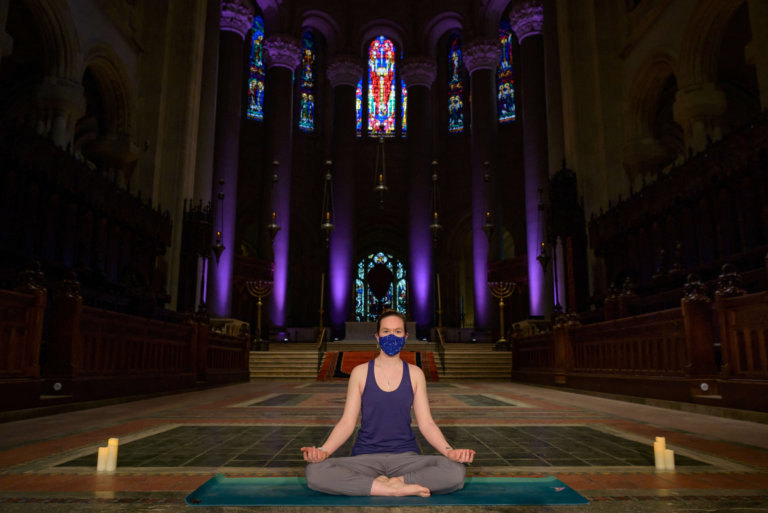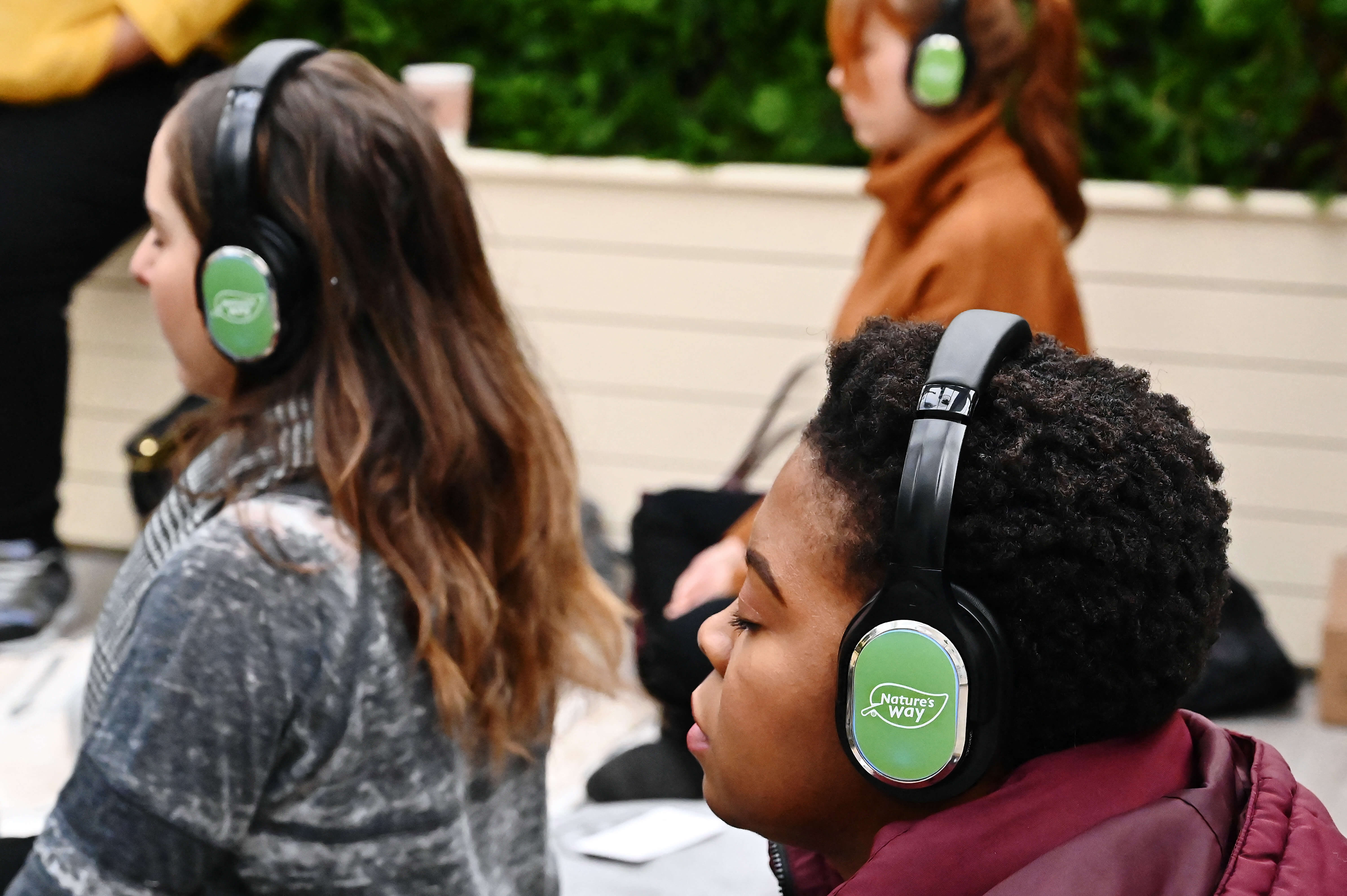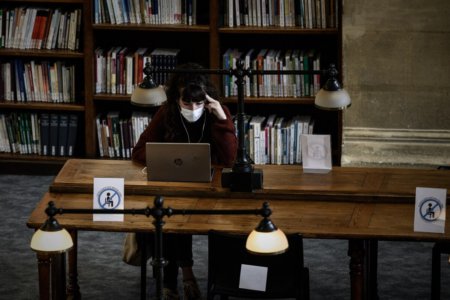
Mindfulness is a moment-to-moment awareness of one’s experience — it is a state and not a trait. While it might be promoted by certain practices or activities, such as meditation, it is not equivalent to or synonymous with them. It is the awareness that occurs when you focus on the present and on the purpose of what you are doing — right here, right now.
Now that we’ve covered what it means, what does it actually help with? According to one study, mindfulness increases creativity. “Mindfulness improves people’s functioning in many areas,” the study notes, “but its relationship with creativity is equivocal.” It promotes metacognitive awareness, decreases rumination and enhances attentional capacities through gains in working memory.

Another way mindfulness can be practiced is through medication. Source: Astrid Stawiarz/ AFP
Mindfulness education
One of the ways in which this can be achieved is through mindfulness education — lessons on techniques to calm the mind and body. It can reduce the negative effects of stress and increase engagement, helping them stay on track academically and avoid behavioural problems.
It reduces anxiety and gives pupils a new way to handle their feelings too, as found by researchers with the Boston Charter Research Collaborative — a partnership between the Centre for Education Policy Research at Harvard University (CEPR), MIT, and Transforming Education.
Georgetown University also tested stress management by inviting participants to undergo a stress test. Here, students were encouraged to take an eight-week mindfulness meditation course then go through a second, similar stress test. Afterward, the participants showed reduced stress hormones and reported feeling less stress during the second test.
“Anxiety disorders affect an estimated 15 million Americans each year,” says Dr. Elizabeth A. Hoge, an associate professor in Georgetown University Medical Centre’s psychiatry department who led the study. “Our study suggests that mindfulness meditation may be a helpful treatment strategy for people with anxiety.”
With an aim to dodge standard psychiatric drug therapies, Hoge hopes to expand the study of mindfulness-related treatments and programmes to other psychiatric conditions. Two examples of programmes for youth developed by clinical psychologists are Mindfulness-Based Cognitive Therapy for Children and Learning to Breathe.
According to the New York Times, mindfulness apps surged in 2020. These apps promise to help you combat anxiety, sleep better, hone your focus, and more. Some of the easy-to-use mindfulness apps that are available for free include Calm, Headspace, MyLife, Smiling Mind, Dreamykid.
Religious meditation
Another way mindfulness can be practised is through meditation. Almost every religion has developed processes to help people to calm their minds and to tune out distractions from the outside world through meditation. Meditation is less about faith and more about altering consciousness, finding awareness, and achieving peace. Some of its kind include mindfulness meditation, spiritual meditation, focused meditation, movement meditation and mantra meditation.
It helps reduce stress both by calming people in the moment and helping to break the cycle of repetitive thoughts that often causes anxiety. Meditation is simple, yet powerful. It helps train your attention to be able to rest in the present moment. Practising mindfulness has benefits to both your psychological health and physical health. This includes decreased anxiety; decreased depression; increased coping skills; decreased irritability and moodiness; and improved learning ability and memory — to name a few.
Students who want to jumpstart into the world of meditation can start start with these books: “Tiny Buddha: Simple Wisdom for Life’s Hard Questions” by Lori Deschene; “365 Tao: Daily Meditations” by Ming-Dao Deng; “Simple Abundance: A Daybook of Comfort and Joy” by Sarah Ban Breathnach; “The Book of Life: Daily MeditationsKrishnamurti” by Jiddu Krishnamurti; and “Moments of Mindfulness: Daily Inspiration” by Thich Nhat Hanh. Alternatively, there are abundance of videos on YouTube right from beginner to advanced levels.










